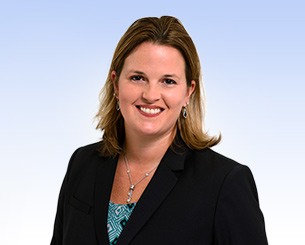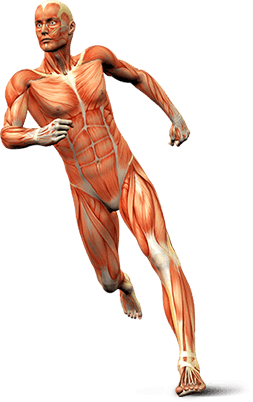12 Critical Questions About Surgery
1. Who is doing the surgery?
Dr. Coyner personally performs the entire procedure. Many cases require an assistant. However, the assistant’s role is primarily for helping in patient positioning, retracting, and for some aspects of incision closure. As an attending surgeon and Assistant Professor at UCONN Health, Dr. Coyner may be joined by residents or fellows who are in training, and who may provide assistance during the procedure. Dr. Coyner will be in the operating room from the beginning of the procedure until the very end.
2. Where is the surgery done?
Dr. Coyner’s outpatient procedures are done at the Farmington Surgery Center, located at the Medical Arts and Research Building (MARB) which houses the New England Musculoskeletal Institute. The Farmington Surgery Center is a state-of-the-art facility designed exclusively for same day surgery in a safe, high-quality and efficient place with a group of outstanding nurses, surgical assistants and anesthesiologists assisting Dr. Coyner in providing superb surgical care. The center contains fully equipped operating rooms and postoperative patient care areas – all with advanced technology.
If your surgery requires you to stay overnight, John Dempsey Hospital, (UConn Health Center) has dedicated space for patients who are hospitalized post orthopaedic surgeries. The inpatient unit includes 28 beds with a dedicated specialized gym and rehab room so patients can start vital physical therapy as prescribed by their doctor, soon after surgery. The team of highly qualified staff which includes, nurses, nurse practitioners/physician assistants, physical therapists, case managers and others, are highly trained in orthopaedic care.
3. Do I have to stay in the hospital?
Most procedures are done on an outpatient basis. With rare exception, only patients requiring more complex surgeries will need an overnight stay. Those patients requiring more complex surgeries will be informed of the potential need for an overnight hospital stay prior to the procedure.
4. What kind of anesthesia will I have?
There are 3 basic types of anesthesia – general, regional, or local. All three of these are options for basic knee surgery as well as some hand and foot procedures. Local anesthesia is not an option for complex knee or hip surgeries or most upper extremity procedures such as shoulder and elbow surgeries. Regional anesthesia is either a spinal (or epidural) for lower extremity procedures or a regional nerve block for shoulder or other upper extremity procedures. A final decision will be made after consultation with the anesthesiologist and will depend both on your preferences and consideration of any underlying medical conditions.
5. Who does the post-op care?
After surgery it will be necessary to follow up at appropriate time intervals with Dr. Coyner. Dr. Coyner will see you personally at all postoperative visits. Your first post operative appointment will be scheduled at the time of the procedure.
6. Are you available if I have questions before or after the procedure?
It is important that you feel comfortable and confident about having a surgical procedure. Dr. Coyner and her staff are available by telephone as well by email to answer any questions that you may have about the surgical procedure and will also address any questions or concerns that may arise after the surgery.
7. How much will it hurt?
Any surgical procedure will result in discomfort after the procedure. How much pain you experience will of course depend on the nature of the procedure, and your own pain tolerance. You will be given a prescription for narcotic medication for a short period of time. Appropriate use of ice and compression will minimize discomfort and the need for prolonged narcotic use. For most knee and shoulder procedures Dr. Coyner recommends using a cryotherapy device called Game Ready. These arrangements for the Game Ready device will be made by the office prior to the surgery.
8. How long will I be off work?
This will depend a lot on the nature of your occupation and what procedure Dr. Coyner performed. For most shoulder procedures you will be able to return to a sedentary job and work comfortably at your desk and computer within a few days, likely while wearing a sling. Manual labor will be delayed more than a few days and will depend on your exact work requirements.
For simple knee procedures you will also be able to return to work within a few days. Manual labor following a more complex hip or knee procedure will require additional time off.You are encouraged to discuss your specific work demands with Dr. Coyner prior to the procedure to gain a better understanding of your time off expectations.
9. What are the possible complications?
Postoperative infection is always a concern after a surgical procedure. Fortunately, these events are quite rare, especially for arthroscopic procedures. Postoperative bleeding, nerve injury, and blood clots are also possible, but exceedingly rare. The most common complication that requires perioperative vigilance is stiffness, especially after reconstructive procedures that often require some amount of joint immobilization. Careful attention to postoperative recommendations and diligence with postoperative physical therapy will minimize this risk.
10. Will I have big scars?
Most procedures are done arthroscopically which is also known as minimally invasive. The incisions are less than ¼ of an inch and are closed with single suture in the skin. For procedures where a larger incision is necessary the skin is closed with a single skin stitch using cosmetic surgical technique. Staples are never used and ugly crosshatched skin sutures are used very rarely. Dr. Coyner will make every effort to keep the scar as thin and as cosmetically acceptable as possible.
11. How many of these procedures have you done?
Dr. Coyner began practicing in 2012 and has done many arthroscopic procedures, primarily on the shoulder, hip and knee. She also has extensive experience with more complex “reconstructions” operations.
As part of the UCONN’s Musculoskeletal Institute and Sports Medicine Program, Dr. Coyner provides advanced treatment and surgical options for patients with a wide range of sports-related injuries and conditions of the shoulder, hip, and knee. She is also a UCONN team physician providing coverage at numerous collegiate sporting events.
Prior to coming to UCONN she spent 6 years at UT Southwestern Medical Center and was the Assistant Team Orthopaedic Surgeon to the NHL Dallas Stars and Head Team Physician for two local high schools, and she provided the official medical coverage for Denver Broncos Pro-Bowl cornerback Chris Harris’ Underdog Football Skills Academy. Dr. Coyner was previously the Assistant Team Physician to a minor-league baseball team and a semi-pro women’s contact football team.
12. Are there alternatives to surgery?
Nonsurgical treatment is often the first line of treatment for many conditions and can be successful if done with diligence and consistency. Our goal is always to get you back to your full activities with an approach that is both minimally invasive yet predictably effective. When appropriate, Dr. Coyner often first makes a referral for a variety of nonsurgical treatments including physical therapy, personal training, deep soft tissue massage, and yoga.

















